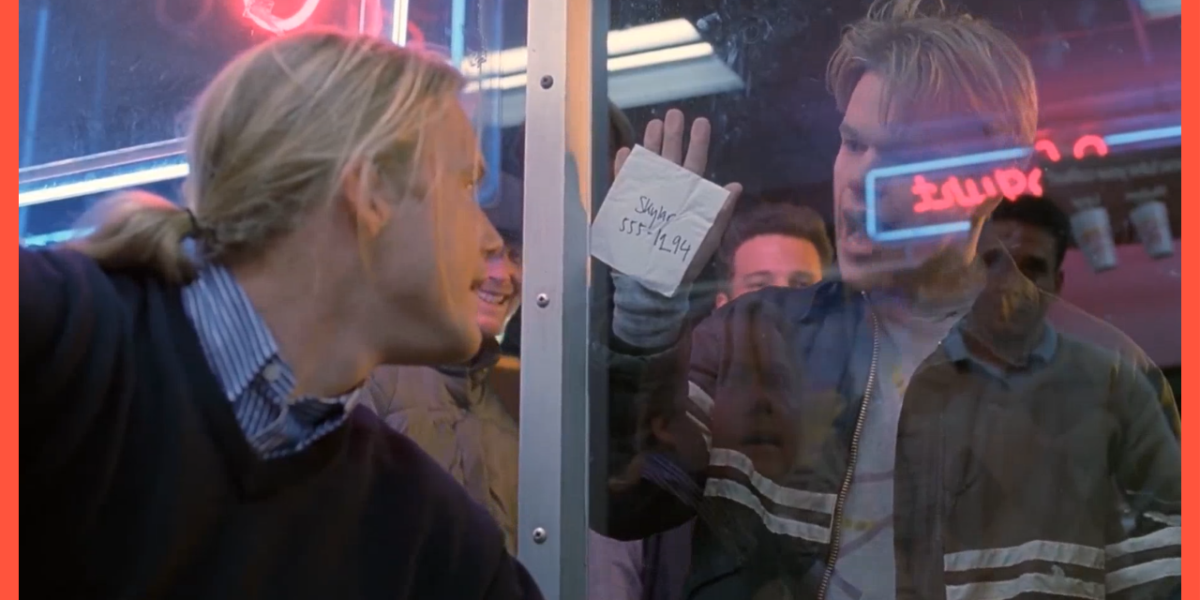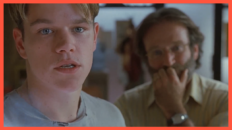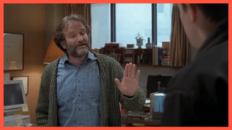Do you go to school here?
Yep.
Yeah, that’s it. I think I had a class with you.
Oh, yeah. What class?
History.
Maybe–
Yes, I think that’s what it was.
You don’t necessarily- may not remember me.
You know, I like it here.
It doesn’t mean ’cause I go here, I’m a genius.
I am very smart–
Hey.
Hey, how’s it goin’? How are ya?
Good. How ya doin’?
What uhh… What class did you…did you say that was?
History. Yeah.
Just history? It must have been a survey course then, huh.
Yeah, it was. It was surveys.
Right.
You should check it out. It’s a good course.
It’d be a good class.
How’d you like that course?
You know, frankly, I found that class, you know, rather elementary.
Elementary.
You know, I don’t doubt that it was.
I, uh, I remember that class. It was, um- It was just between recess and lunch.
Clark, why don’t you go away?
Why don’t you relax?
Why don’t you go away?
I’m just havin’ fun with my new friend that’s all.
Wait are we gonna have a problem? I don’t understand.
No, no, no…no. There’s no problem here.
I was just hoping you might give me some insight into the evolution of the market economy in the southern colonies.
My contention is that prior to the Revolutionary War, the economic modalities of especially in the southern colonies, could most aptly be characterized as agrarian precapitalist.
Let me tell you somethin’.
Of course, that’s your contention. You’re a first-year grad student.
You just got finished readin’ some Marxian historian – Pete Garrison, probably – You’re gonna be convinced of that till next month when you get to James Lemon.
Then you’re gonna be talkin’ about how the economies of Virginia and Pennsylvania were entrepreneurial and capitalist way back in 1740.
That’s gonna last until next year. You’re gonna be in here regurgitatin’ Gordon Wood, talkin’ about, you know, the prerevolutionary utopia and the capital-forming effects of military mobilization.
Well, as a matter of fact, I won’t, because Wood drastically underestimates the impact of-
Wood drastically underestimates the impact of social distinctions predicated upon wealth, especially inherited wealth. You got that from Vickers’ Work in Essex County. Page 98, right?
Yeah, I read that too. Were you gonna plagiarize the whole thing for us? Do you have any thoughts of your own on this matter?
Or do you… is that your thing? You come into a bar. You read some obscure passage. And then pretend- you pawn it off as your own…
As your own idea just to impress some girls? Embarrass my friend?
See, the sad thing about a guy like you is, in 50 years, you’re gonna start doin’ some thinkin’ on your own.
And you’re gonna come up with the fact there are two certainties in life.
One: Don’t do that.
And two: You dropped 150 grand on a fuckin’ education you could’ve got for $1.50 in late charges at the public library.
Yeah, but I will have a degree, and you’ll be servin’ my kids fries at a drive through on our way to a skiing trip.
Yeah, maybe. Yeah, but at least I won’t be unoriginal.
But I mean, if you have a problem with that, I mean we could step outside and we could figure it out.
Nah, man, there’s no problem. It’s cool.
It’s cool?
Yeah.
Cool.
You’re an idiot.
What?
You’re an idiot. I’ve been sitting over there for 45 minutes waiting for you to come and talk to me. But I’m tired now, and I have to go home. And I couldn’t sit there anymore waiting for you.
Well, I’m Will.
Skylar.
Skylar.
Oh, and by the way, that guy over there – Michael Bolton clone – He wasn’t sitting with us, so to speak.
Yeah, I know. I kinda got that impression.
Good. Okay.
Well, I’ve got to go.
Gotta get up early and waste some more money on my overpriced education.
No, I didn’t mean you. I…
Oh, that’s all right.
There’s my number. So maybe we can go out for coffee sometime.
Do you like apples?
Yeah. – Yeah?
Well, I got her number!
How do you like them apples?



